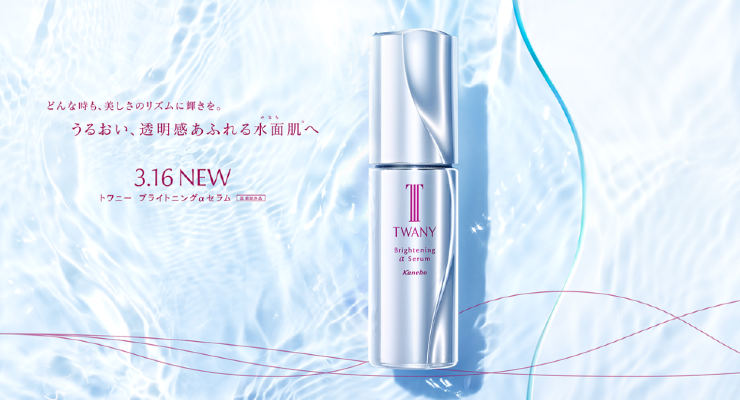Charles Sternberg, Assistant Editor04.01.21
Starting in March, Kao is eliminating words such as “whitening” and “lightening” from its products, citing concerns surrounding racial inequality as highlighted by the Black Lives Matter movement.
Lightening skin using cleansers, moisturizers and makeup has been a longstanding trend in Japan. The word often used to describe lightening in the Japanese skincare industry is “美白” (bihaku), which translates to “beautiful white.”
Kao says it doesn’t want to send out the message that one skin tone is inferior or superior to another, and decided to drop the wording as a part of its commitment to promoting diversity.
Instead of using terms like “bihaku,” the company is adopting the word “brightening,” starting with the new Twany range of products released in March. The aim is to replace the word on all of its merchandise within a few years.
This change comes after Unilever, Johnson & Johnson and L’Oréal made similar alterations to their wording last year. Kao is the first Japanese cosmetics maker to make the switch.
Lightening skin using cleansers, moisturizers and makeup has been a longstanding trend in Japan. The word often used to describe lightening in the Japanese skincare industry is “美白” (bihaku), which translates to “beautiful white.”
Kao says it doesn’t want to send out the message that one skin tone is inferior or superior to another, and decided to drop the wording as a part of its commitment to promoting diversity.
Instead of using terms like “bihaku,” the company is adopting the word “brightening,” starting with the new Twany range of products released in March. The aim is to replace the word on all of its merchandise within a few years.
This change comes after Unilever, Johnson & Johnson and L’Oréal made similar alterations to their wording last year. Kao is the first Japanese cosmetics maker to make the switch.




























